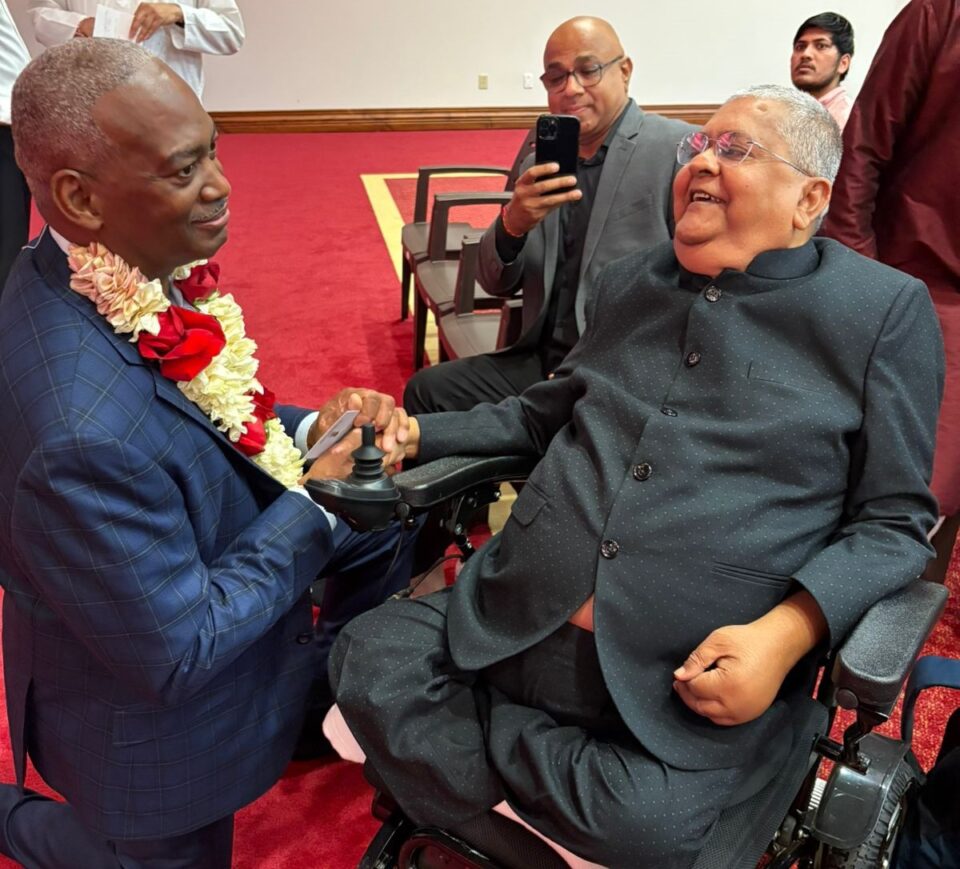BY JYOTHSNA HEGDE
Atlanta, GA, September 5, 2025: Gujarati Samaj of Atlanta (GSA) welcomed and felicitated Padma Shri awardee Kanubhai Tailor, the man who turned personal adversity into a movement of hope, on August 25, 2025 at the GSA Building in Tucker the with warmth and respect, celebrating a leader who has dedicated his life to uplifting India’s differently-abled community.
Community leaders gathered in large numbers to honor him: President Vinod Kaswala, Bihari Patel, Manoj Barot, Rotary members Chatur Chhabhaya and Mustafa Ajameri, past president Vasudev Patel, Ramesh Suhagia, Jayantibhai Patel of BAPS, Rotary President Bharveeben, Girishbhai Mukhi, Amrutbhai Patel, Prakash Shrivastav, and Fulton County Magistrate Cassandra Kirk, Himanshu Karnwal, Member Board of Directors at Georgia Regional Transportation Authority, among others. A special luncheon organized by Chhabhaya and the Rotary Club of Atlanta became a moment of recognition for a man whose life has been dedicated to empowering India’s differently-abled—those he calls Divyang, people of divine ability.
During his stay, Tailor visited the BAPS Temple, Gadhapurdham Temple, and SMVS Temple, Yugal Kunj, each visit becoming both spiritual pilgrimage and an occasion for sharing his extraordinary journey. He also visited the fodac (friends of disabled adults & children) facility. Fodac gifted a state of the art wheelchair to Tailor during the event.
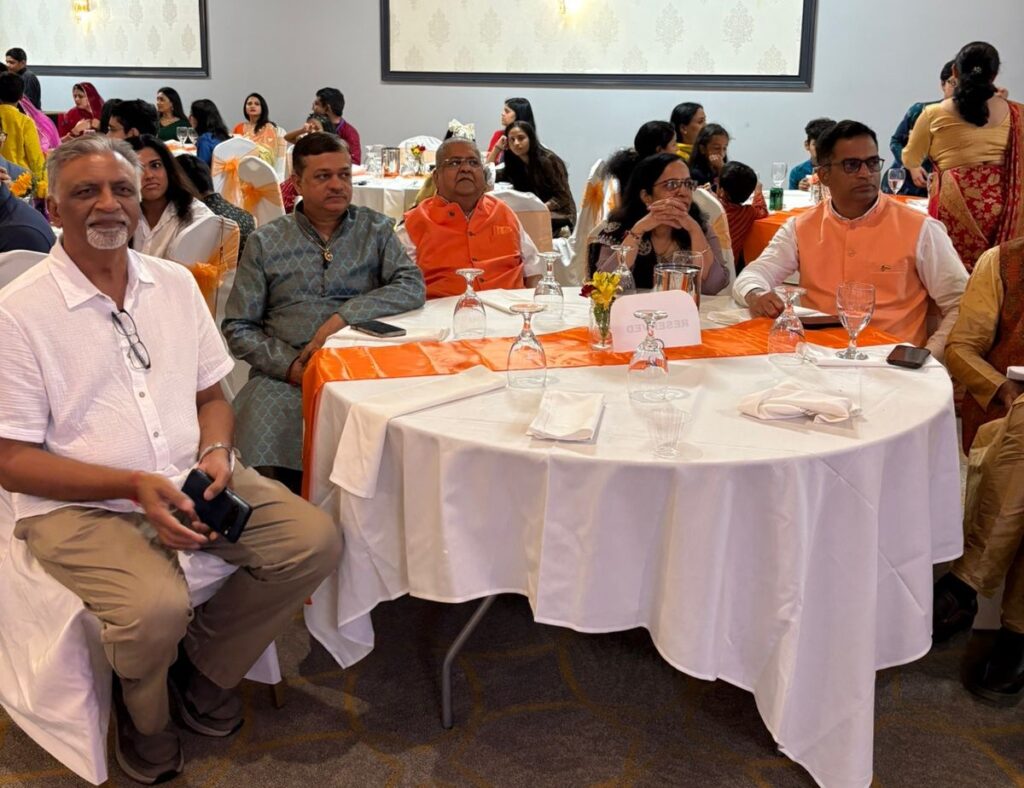
He spoke with quiet conviction about his childhood in a humble Gujarati village, about challenges born from illness and poverty, and about the friends and family who helped him complete his studies despite the odds. Yet his story, he reminded his listeners, was never about struggle alone—it was about turning adversity into action.
In Atlanta, he outlined the initiatives that define his life’s work: a school in Surat where Divyang children study from grades 1 through 12; an Industrial Training Institute and a BCA college that provide technical education exclusively to disabled students; and, most recently, the creation of a residential facility for elderly Divyang individuals—the first of its kind in the world. His words carried not only facts but also a deep insistence on dignity. “I am thankful to leaders from Indira Gandhi to Prime Minister Narendra Modi for their encouragement,” he said. “Their support has helped me continue my mission of uplifting physically challenged individuals in Gujarat.”
The Atlanta community was moved. Leaders praised him not only for his achievements but for his humility—for reminding them that true service is measured not in awards but in lives transformed. His visit became more than a cultural exchange; it was a bridge connecting Gujarat’s spirit of seva with the diaspora’s pride in shared identity.
From this warm gathering in Atlanta, the story of Kanubhai Tailor stretches back decades.
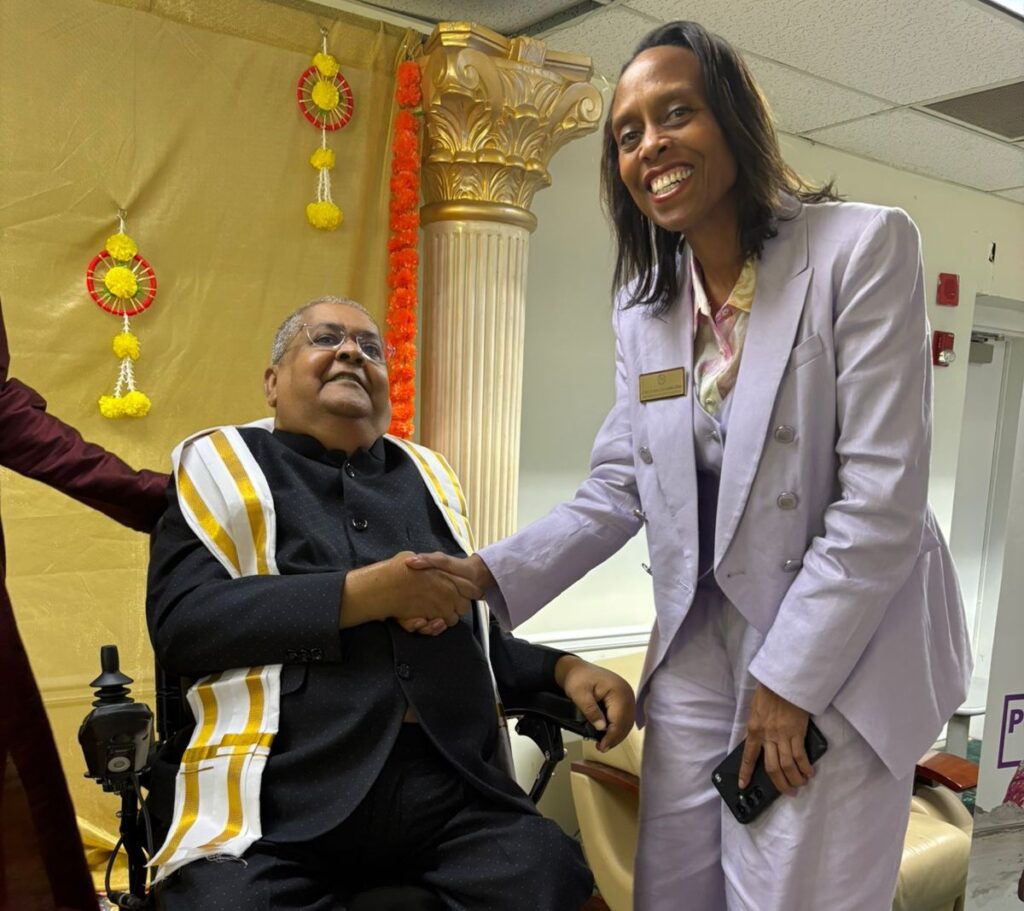
The Enduring Legacy of Kanubhai Tailor: A Triumph of Vision and Perseverance
In the village of Adas, Gujarat, a boy was born on 17 May 1956. The world had little to offer him—his family had limited means, and fate would soon test him with a challenge most children never know. Poliomyelitis came quietly, cruelly, and left him with paralyzed legs. But it could not paralyze his will. Where many would have seen a lifetime of limitation, Kanubhai Hasmukhbhai Tailor saw a reason to rise.
His life became a song of defiance. He studied relentlessly, refusing to be defined by absence of mobility. Yet books alone could not contain his fire. At just 23, he staged an 11-day hunger strike, demanding free travel for the disabled. The government yielded. Victory came not with applause but with dignity—for thousands of people like him. From that day, his personal battle became a public mission, and the young man who once sat quietly in a small classroom was now a voice that reached as far as Geneva, where he represented India at the Sixth Mobility International World Conference. His struggle had become global.
But visionaries are rarely content with moments. They build movements. In Surat, Kanubhai started small, running a printing press from home. The government named him “Best Employer,” but he was preparing for something far greater. In 1991, he planted the seed that would become the Disabled Welfare Trust of India (DWTI). The beginning was hard funds were scarce, skepticism abundant. Kanubhai’s answer was not complaint but clarity. He conducted a survey and found 1,280 disabled children—data that spoke louder than sentiment. In 1997, he gained ten rooms in a primary school and a grant of ₹51,000. On July 1, the first DWTI school opened with four children. By December, there were 118. Hope had found its classroom.
And then, the dream unfurled. By 2000, DWTI had moved into a larger space, teaching 400 children. By 2006, on land stretching 4,500 square yards, a new campus arose—its foundation laid by the Vice President of India, its walls raised by the support of corporate giants. What had begun in borrowed rooms was now a sanctuary of strength, dignity, and learning.
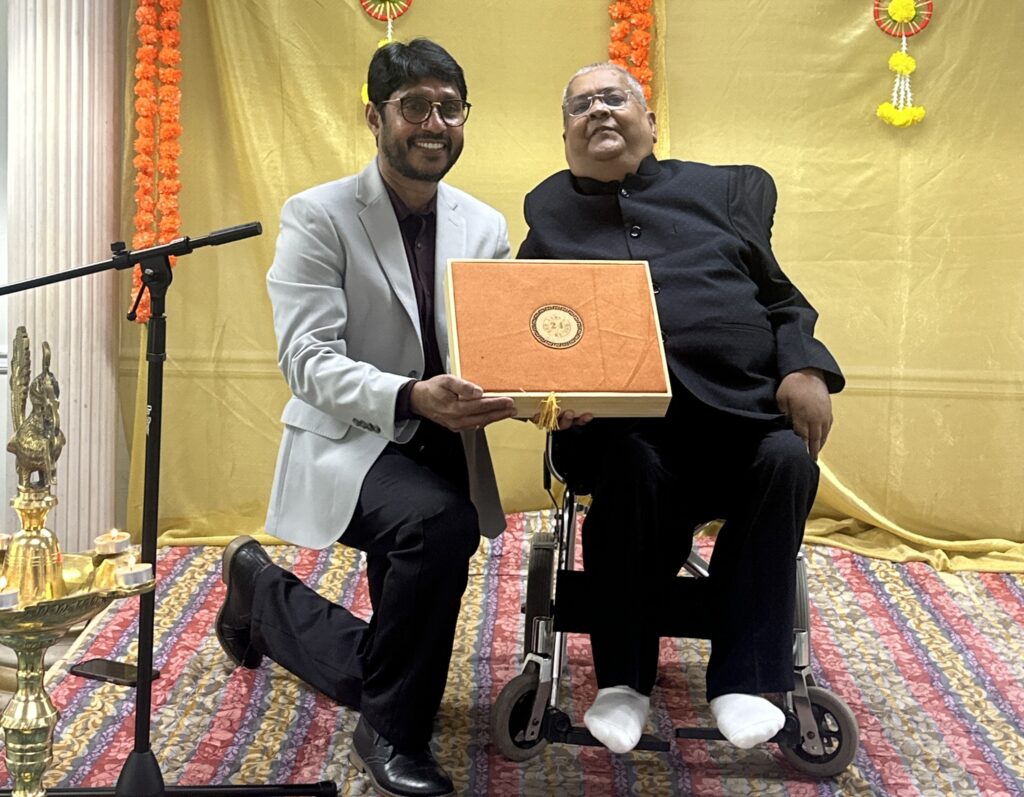
Today, DWTI is not merely a school. It is a universe of empowerment. It nurtures children from primary education to higher studies. It houses an ITI, a BCA college with free tuition for the disabled, hostels, physiotherapy and prosthesis centers, a skill-development wing, and a hospital for corrective surgeries. Children arrive burdened with barriers; they leave wearing the titles of doctors, engineers, dentists, scientists. They carry not only certificates but dignity—proof that the human spirit, when nurtured, knows no limit. More than 29,000 lives have already felt its touch.
Awards came, as they must to such a life. The Padma Shri in 2011. The Gujarat Gaurav Award. The Godfrey Phillips Bravery National Award. A Lifetime Achievement Award from the Ahmedabad International Film Festival. Over 70 honors. More than 13 honorary doctorates. Yet, beyond these, his truest award is the pride in a child’s eyes, the smile of a parent who once feared their child’s future, the dignity restored where none seemed possible. His wisdom now extends beyond Surat—he sits on the board of founders at Rishihood University, guiding education with the same empathy that built DWTI brick by brick.
But Kanubhai’s story is not past tense—it is still being written. In February 2023, he laid the foundation stone of Prabhu nu ghar, the world’s first old-age home for the physically challenged. A place for 200 residents, built with compassion as its cornerstone, with a vision to care for those who age with disability—because society often forgets them. Alongside, plans bloom for a hospital dedicated to corrective surgeries and a school that will one day embrace 1,000 children. His vision now stretches across the entire arc of life—from the innocence of childhood to the dignity of old age.
What does his journey teach us? That adversity is not an anchor but a wind, if we learn to harness it. That disability is not a wall but a doorway to strength. That one individual, fueled by empathy and perseverance, can build not only institutions but movements that echo across generations.
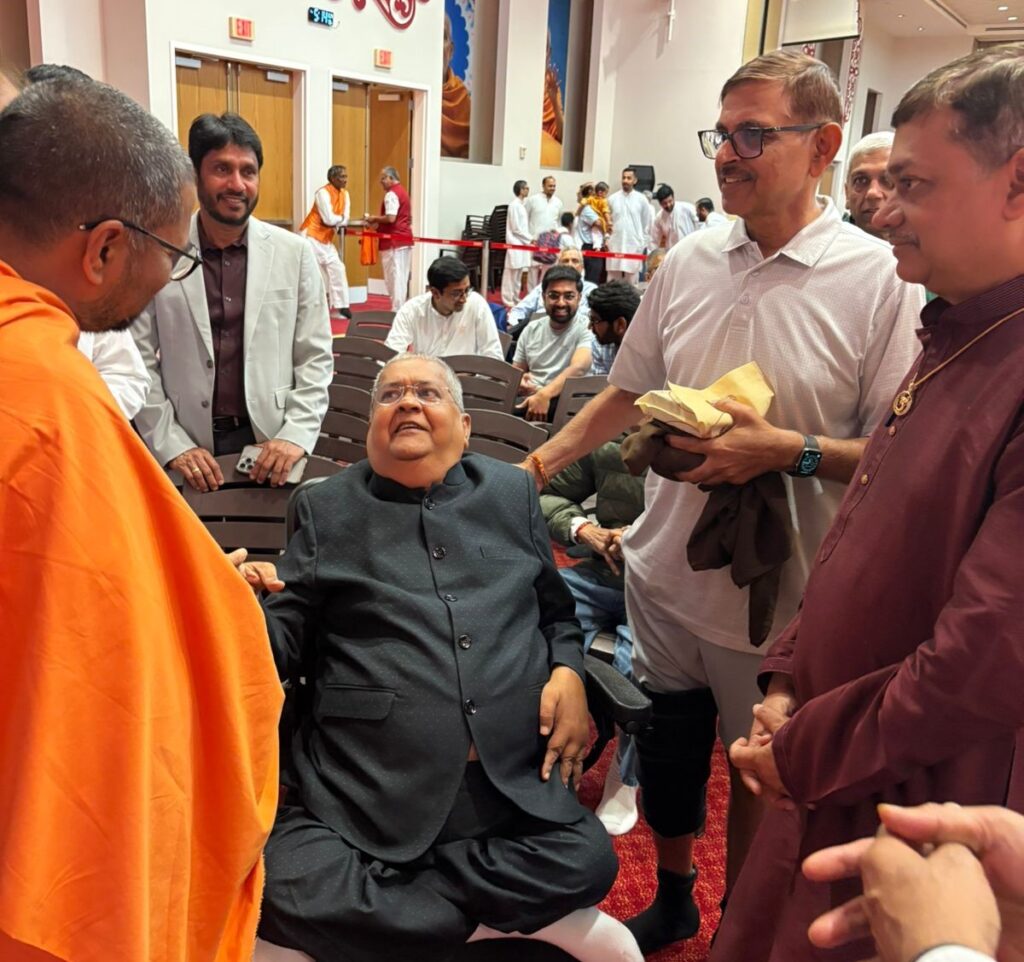
Kanubhai Tailor’s legacy does not live in awards or stone monuments. It lives in footsteps—prosthetic or otherwise—that march confidently into society. It lives in voices once silenced, now speaking boldly of dreams. It lives in the walls of DWTI, in the future Prabhu nu ghar, in the countless lives that rise from struggle into dignity.
His life reminds us that darkness is only the backdrop against which light shines brighter. That limitations, embraced with courage, become ladders. That the human spirit, once awakened, can create miracles.
Kanubhai Tailor began as a boy struck by polio. He became a man who struck at despair. His story endures not because he overcame his own disability, but because he taught the world that no one is truly disabled when society chooses to believe in their ability.
The story of Kanubhai Tailor is not just his own—it is a call to us all to believe, to serve, and to create a society where no one is left behind.”



